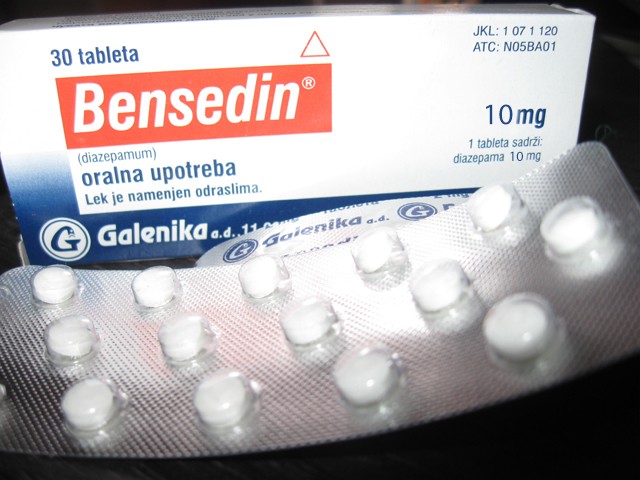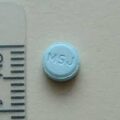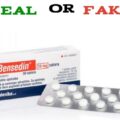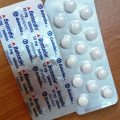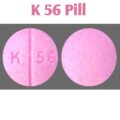Bensedin is a prescription medicine containing 10 mg diazepam. It is produced by Galenika a Serbian pharmaceutical company with headquarters in Zemun, Belgrade. Galenika bensedin comes in a 10mg x15 tabs in a blister pack of 30x 10mg diazepam to a box. This type of diazepam is very common in Bosnia & Herzegowina, Serbia and lately in the United Kingdom (UK). Diazepam belongs to the class of medicines known as benzodiazepines. It may be used for the short-term treatment of anxiety and seizure disorders. Diazepam acts on nerve cells to calm abnormal electrical activity within the brain. It calms and sedates and may be used in the treatment of anxiety, as an anticonvulsant, as a muscle relaxant, or for its sedative effects.
Benzodiazepines such as Bensedin were originally developed to replace more dangerous and addictive barbiturates. Despite the improved safety profile of Bensedin and other benzodiazepines, these substances can still lead to physical dependence and addiction even when taken exactly as prescribed. Benzodiazepines like Bensedin are classified as Schedule IV controlled substances.
How does Bensedin work?
Experts aren’t exactly sure how diazepam works, but believe its effects are due to its ability to strongly bind to the GABA-benzodiazepine receptor complex, which enhances the affinity for GABA (a neurotransmitter that blocks impulses between nerve cells in the brain). Low levels of GABA have been linked to anxiety, mood disorders, seizure disorders, and pain.
What are the side effects of Diazepam (Bensedin)?
Get emergency medical help if you have signs of an allergic reaction: hives; difficult breathing; swelling of your face, lips, tongue, or throat. Diazepam can slow or stop your breathing, and death may occur. A person caring for you should seek emergency medical attention if you have slow breathing with long pauses, blue colored lips, or if you are hard to wake up.
Call your doctor at once if you have:
- weak or shallow breathing;
- severe drowsiness or feeling like you might pass out;
- depressed mood, thoughts of suicide or hurting yourself;
- confusion, hallucinations;
- anxiety, panic attacks, trouble sleeping;
- hyperactivity, agitation, aggression, hostility;
- unusual risk-taking behavior; or
- new or worsening seizures.
The sedative effects of diazepam may last longer in older adults. Accidental falls are common in elderly patients who take benzodiazepines. Use caution to avoid falling or accidental injury while you are taking diazepam.
Common side effects may include:
- drowsiness;
- tired feeling;
- muscle weakness; or
- loss of coordination.
This is not a complete list of side effects and others may occur. Call your doctor for medical advice about side effects.
Can I take Diazepam (Bensedin) if I’m pregnant or breastfeeding?
When treating seizures, do not start or stop taking diazepam during pregnancy without your doctor’s advice. Diazepam may cause harm to an unborn baby, but having a seizure during pregnancy could harm both the mother and the baby. Tell your doctor right away if you become pregnant while taking diazepam for seizures.
When treating anxiety, alcohol withdrawal, or muscle spasms: If you take diazepam while you are pregnant, your baby could become dependent on the drug. This can cause life-threatening withdrawal symptoms in the baby after it is born. Babies born dependent on habit-forming medicine may need medical treatment for several weeks. Tell your doctor if you are pregnant or plan to become pregnant. You should not breastfeed while using this medicine.
What drugs and food should I avoid while taking Bensedin Diazepam?
Do not drink alcohol. Dangerous side effects could occur.
Avoid driving or hazardous activity until you know how this medicine will affect you. Dizziness or drowsiness can cause falls, accidents, or severe injuries.
Grapefruit may interact with diazepam and lead to unwanted side effects. Avoid the use of grapefruit products.
How to take Diazepam (Bensedin)?
Use Diazepam (Bensedin) exactly as directed on the label, or as prescribed by your doctor. Do not use in larger or smaller amounts or for longer than recommended. Follow all directions on your prescription label and read all medication guides or instruction sheets. Your doctor may occasionally change your dose. Use the medicine exactly as directed.
Diazepam may be habit-forming. Misuse can cause addiction, overdose, or death. Keep the medication in a place where others cannot get to it. Selling or giving away this medicine is against the law.
Diazepam should be used for only a short time. Do not take this medicine for longer than 4 months without your doctor’s advice. Do not stop using diazepam suddenly, even if you feel fine. Stopping suddenly may cause increased seizures. Follow your doctor’s instructions about tapering your dose. Call your doctor at once if you feel that this medicine is not working as well as usual, or if you think you need to use more than usual.
Diazepam is a drug of abuse and you should be aware if anyone is using your medicine improperly or without a prescription. Do not keep leftover diazepam. Just one dose can cause death in someone using this medicine accidentally or improperly. Ask your pharmacist where to locate a drug take-back disposal program. If there is no take-back program, flush the unused medicine down the toilet.
What should I do if I missed a dose of Bensedin Diazepam?
Take the medicine as soon as you can, but skip the missed dose if it is almost time for your next dose. Do not take two doses at one time.
What is the street value of Bensedin Diazepam?
In many cities, a 5mg tablet of diazepam may sell for $5, and 10-mg tablets like Bensedin are worth up to $10 on the streets.
What is the Treatment for Bensedin addiction?
Treatment for diazepam use disorder is a four-stage process. For the most successful outcomes, all four stages of treatment must occur. They are:
Medical detoxification: A supervised medical detox in a treatment center clears the mind and body of all illicit and legal substances safely while minimizing pain and helping to avoid medical complications
Rehab: Next is entering a residential or outpatient drug treatment program to receive behavioral, psychological, and social therapies
Medication-assisted treatment (MAT): Maintenance medications under doctor supervision are prescribed to maintain sobriety. MAT aims to eliminate cravings and prevent relapse.
Aftercare plan: Once formal treatment is completed, aftercare services such as 12-step meetings, drug testing, sober living homes, individual counseling sessions, and social and recreational activities are provided. SEE: How to Spot Fake Bensedin Diazepam

